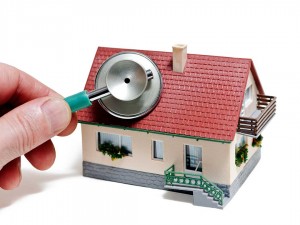10 Health Effects of Mold That Signal You Need an Air Quality Test
Mold spores are everywhere — they are common in outside air and are typically found in indoor air, as well, but in lesser quantities. When the number of mold spores inside exceed the number of mold spores outside, it can signal that a problem is brewing. 
In buildings, commercial or residential, mold grows when:
• Water or moisture enters or develops within the building
• The humidity within the building exceeds 50%
• The temperature is between 20 and 80 degrees Fahrenheit
• There are organic porous materials, such as drywall or carpet which provide a perfect medium for the mold to grow.
Once mold begins growing, it releases mycotoxins into the environment. Mycotoxins are by-products of some molds which can cause an allergic reaction in people, and in some cases they can cause a toxic reaction. For a minority of people, exposure to mold can suppress their immune system creating additional health problems. Surprisingly, a wide variety of molds, including the most common molds generally considered harmless, can produce mycotoxins.
Importantly, mold and their mycotoxins are a subset of factors within the environment that can make people ill. Building Related Illnesses (BRIs) is the term used to describe illnesses related to specific exposures in the indoor environment. Presence of these illnesses warrant at least a mold test but more likely a mold inspection as well.
Health effects from mold can be:
1. Sneezing
2. Itchy eyes, nose, and throat
3. Stuffy or runny nose
4. Sore throat
5. Headaches
6. Fatigue
7. Coughs
8. Additional respiratory problems, similar to colds and flu
9. Bloody noses
10. Skin problems
Consequently, controlling moisture within a building is critical. If building moisture is left unattended mold will start to grow within 72 hours of a water intrusion event. This is also true if a humidity problem is left unattended.
Turn-Key Environmental is one of a few local Dayton, Ohio companies that conduct indoor air quality investigations and mold testing with a Certified Microbial Remediation Supervisor (CMRS) on staff. Contact us today to schedule an appointment for mold testing or learn more about our mold inspection services in Dayton, Ohio.


